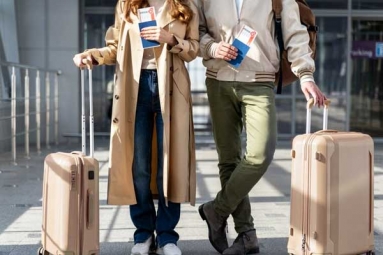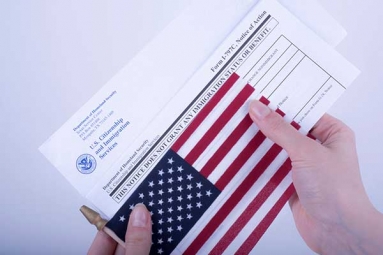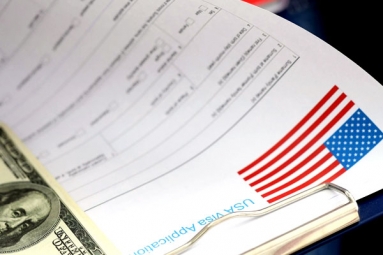
(Image source from: NEWSJIZZ)
The number of applications for the H-1B visa that allows the United States companies to employ foreign workers in specialty occupations has risen slightly in last year after two years of decline.
The United States Citizenship and Immigration Services (USCIS) has received 2.01 lakh applications for H-1B visa for the current season 2019-20 (the fiscal year 2020). This is a little over 10,000 compared to last year.
A slight decline was seen in the number of applications for H-1B visa in the last two years. The fiscal year begins from October 1, 2019, and the USCIS started receiving the visa petitions from April 1.
Earlier this year, the USCIS received 190,000 cap-subjected H-1B petitions. In 2018, it received 199,000 applications whereas in 2017, 236,000 petitions in the first five days after it started receiving the applications.
On April 5, the USCIS, the federal agency mandated with task of approving such applications, said it has reached Congressionally-mandated 65,000 H-1B visa cap for the fiscal year 2020. The agency had also said that it would find out if it has received a decent number of petitions to meet the 20,000 H-1B visa U.S. advanced degree exemption, known as the master's cap.
The United States issues 65,000 H-1B visas every year under the regular cap (also known as general quota). An additional 20,000 H-1B visas are allotted to those having an advanced degree from the U.S. universities under the master’s cap. H-1B is the most sought-after work visa among foreign, including Indian, professionals.
The technology companies rely on it for the most part to hire tens of thousands of employees each year from countries like India and China.
In April 2017, President Donald Trump, had issued the 'Buy American and Hire American Executive Order', instructing the Department of Homeland Security (DHS) to "propose new rules and issue new guidance, to supersede or revise previous rules and guidance if appropriate, to protect the interests of U.S. workers in the administration of our immigration system."
The executive order specifically mentioned the H-1B program and directed the DHS and other agencies to "suggest reforms to help ensure that H-1B visas are awarded to the most-skilled or highest-paid petition beneficiaries."
By Sowmya Sangam



















